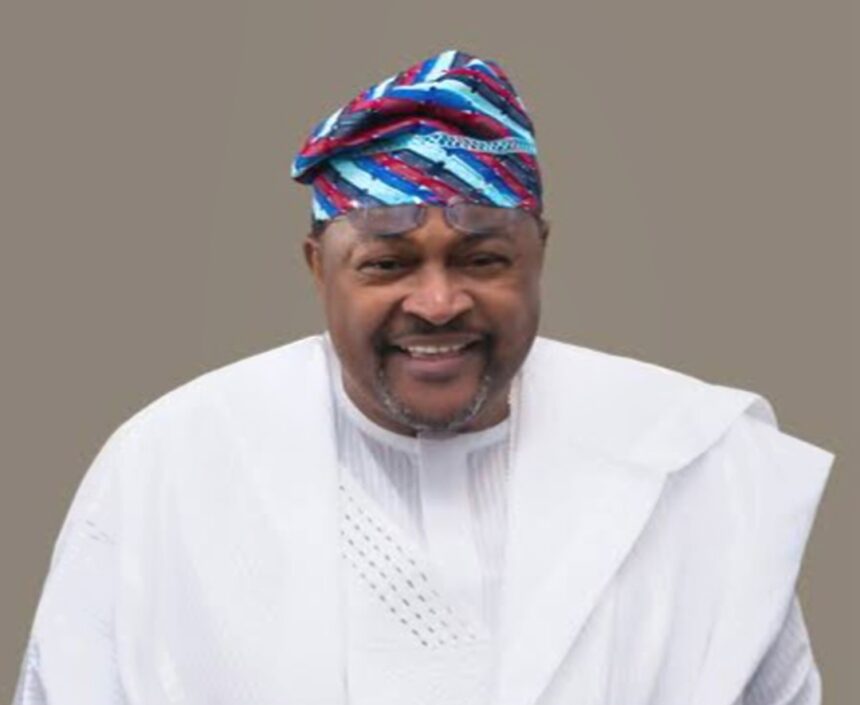*A Veteran’s Plea: Dele Momodu Addresses Unseen Struggles of Nigerian Journalists
*Ovation Publisher’s Appeal Highlights Rigours, Humiliations Journalists Endure Daily
Journalists are the unsung bards of our time, capturing history and the essence of events with their pens. Often pigeonholed where the flicker of truth battles the darkness of neglect, they toil with an unwavering commitment that borders on the heroic, weaving narratives that resonate with the heartbeat of the nation.
Yet, despite their indispensable role, these chroniclers of reality are met with indifference, their sacrifices rendered invisible by the glaring spotlight of more celebrated professions.
Dele Momodu, a luminary in the media world, recently cast a stark light on these unacknowledged sufferings, offering a poignant appeal that echoes with the pain of countless journalists. His words are a clarion call, urging society to recognize and rectify the injustices faced by those who, day after day, shape our understanding of the world.
Momodu’s impassioned plea serves as a beacon, illuminating the dire straits of Nigerian journalists. His heartfelt post, a tapestry of raw truths and vivid metaphors, lays bare the myriad challenges journalists face. They are the invisible threads holding the fabric of society together, yet they are often left to fray at the edges, unnoticed and unappreciated.
Momodu’s message is a lamentation of the systemic neglect that plagues the journalism profession. Event organizers, in their grandeur, frequently overlook the very individuals who breathe life into their celebrations. While vast sums are earmarked for event planners, decorators, comedians, and musicians, journalists are relegated to the periphery, receiving mere pittances for their exhaustive efforts. This gross disparity, as Momodu eloquently outlines, is not just a financial oversight but a moral failing, one that perpetuates a cycle of indignity and impoverishment.
Neglected and Underpaid: The Harsh Reality
“Almost on daily basis, I receive invitation cards from friends asking us to cover birthdays, weddings, business launch, funerals, housewarming, and other such lavish events,” Dele Momodu begins his heartfelt appeal. These events, as he highlights, consume thousands of dollars. Budgets include planning, venues, food and beverages, lights and sound, comperes, artists, photography, videography, hotels, engineers, fabrics, fashion designers, makeup, security, car hires, jewelry, and accessories. Yet, amidst these meticulous plans, the media is often forgotten, treated as the “lamb of GOD who takes away the sins of the world.”
Momodu’s words strike at the core of a deeply entrenched problem. The financial instability that many journalists face drives them towards sensationalism, a survival mechanism in a landscape that rarely rewards integrity. The profession, vital to the functioning of a democratic society, is thus caught in a paradox where the purveyors of truth are compelled to compromise their values for mere subsistence.
A journalist, cloaked in anonymity, shared their plight: “We are often the last to be considered when it comes to payments. Event organizers pay millions to comedians and musicians, but we are lucky to get even a fraction of that. It’s disheartening and demoralizing.”
Disparity in Event Budgets
Momodu’s post underscores a glaring disparity in how event budgets are allocated. “It is most unfair to pay for all services and refuse to pay ours,” he lamented. This sentiment is echoed by another journalist, who expressed, “It’s insulting to be given N10,000 for covering an event when a comedian is paid N2 million for a 20-minute performance. We spend hours at these events, yet our efforts are trivialized.”
Such events, as Momodu notes, include vast expenditures on various professionals and services, but consistently overlook the media. The meticulous planning that goes into every facet of an event, from venue rental to the last piece of decoration, starkly contrasts with the haphazard, often nonexistent, planning for media coverage.
A Call for Change
The need for a paradigm shift in the treatment of journalists is more pressing than ever. Event organizers and media managers must recognize the invaluable contributions of journalists, who, as Momodu pointed out, are essential to the success and visibility of any event. “My appeal is that every event must include media budget,” Momodu urges, emphasizing the extensive costs journalists bear: “We have huge bills to pay; salaries, flights, road transportation, expensive cameras and gadgets, production, food and accommodations, risks to lives and properties, and so on.”
A seasoned journalist remarked, “We are the storytellers, the ones who bring events to life for the public. Without us, many events would go unnoticed. It’s about time we were treated with the dignity and respect we deserve.”
Internal Struggles: Media Houses and Employee Welfare
The issue of maltreatment extends beyond event organizers to the media houses themselves. Journalists frequently endure delays in salary payments and lack of proper support from their employers. “If our employers fail to respect and honor us, nobody outside the industry will,” observed another journalist. This internal neglect exacerbates the challenges faced by journalists, undermining their ability to perform their duties effectively and with integrity.
A young reporter shared their disheartening experience: “At times, we go for months without pay, yet we are expected to produce quality work. It’s a vicious cycle of exploitation and neglect.”
A Profession in Peril
Journalism, once revered as a noble profession, is now teetering on the edge of a precipice. The financial instability and lack of appreciation are not just problems of remuneration but also issues of survival for many journalists. Momodu’s appeal is a clarion call to save the profession from the brink, urging stakeholders to take immediate and decisive action.
An editor with decades of experience shared their perspective: “The journalism profession is in peril. We are losing talented journalists to other fields because they can no longer sustain themselves. This is a loss not just for the media industry but for society as a whole.”
Towards a Better Future
Dele Momodu’s impassioned plea is a wake-up call to both event organizers and media managers. The journalism profession, integral to societal growth and informed public discourse, must be nurtured and respected. Ensuring fair compensation and proper treatment for journalists is not just a matter of ethics but a necessity for the sustainability of the media industry. As Momodu aptly summarized, “But for the benevolence of GLO, many of our hardworking colleagues will still be living on peanuts, and in penury…” It is high time for a change, one that acknowledges and rewards the tireless efforts of Nigerian journalists.
On this note, The Capital equally lends its voice to the clarion call: In the twilight of our collective ignorance, may we finally see the dawn of a new era where journalists are celebrated as the guardians of truth that they truly are. Let their sacrifices be recognized, their voices heard, and their contributions rewarded with the respect and remuneration they so rightfully deserve. In honouring them, we honour the very essence of a free and informed society.




